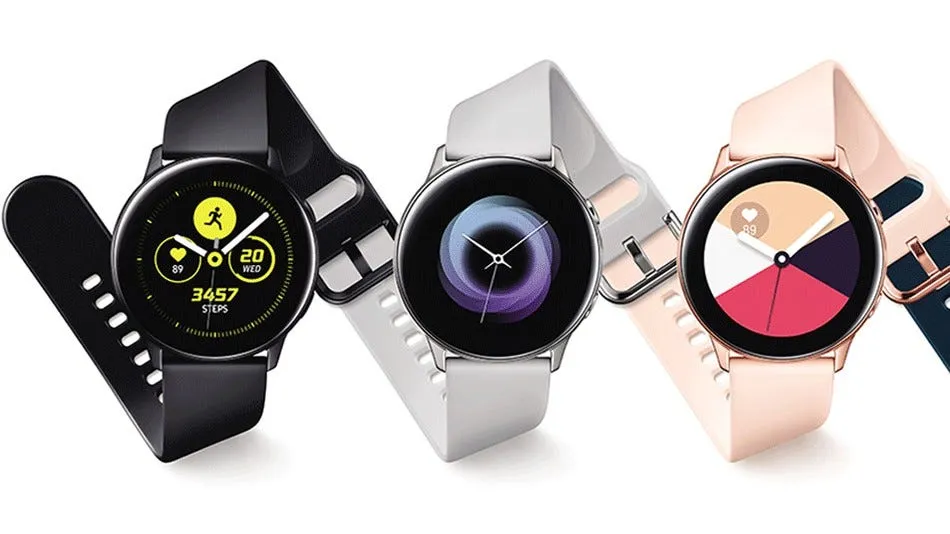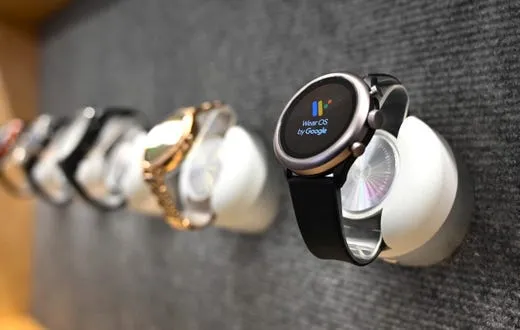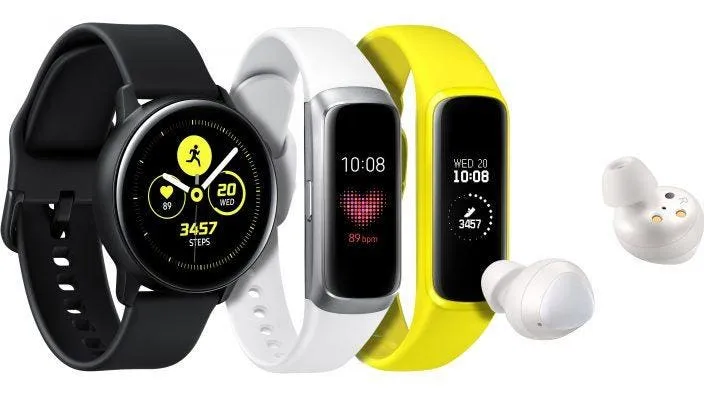ADSactly Technology : The Age of Fitness Wearables is Upon Us!
Do you own a smartwatch or a device that tracks your activity? I don't personally own one myself but many of my friends are wearing them these days...
If I go to google I can get the sterile definition for an electronic wearable device and it can be defined as an activity tracker or fitness tracker that basically amounts to a device that enables monitoring and tracking of fitness-related metrics such as distance walked or run, calorie consumption, and in some cases heartbeat and quality of sleep.
Basically it is a wearable computer that gets quite personal!
According to a recent article entitled 'Samsung unveils trio of Fitness wearables including Galaxy Watch Active, Galaxy Fit' I learned that Samsung is leading the charge with Apple and Fitbit in creating the next generation of these devices.
In fact, along with five phones, including the new fancy pantsy foldable one, and a new set of earbuds, Samsung has released a line of fitness wearables on Wednesday at its Unpacked event in San Francisco.
These new wearables to join the Samsung family of devices include the Galaxy Watch Active, the Galaxy Fit and Galaxy Fit e.
The Galaxy Watch Active is the first Samsung device to feature blood pressure tracking. The smartwatch is also built with improved stress monitoring and sleep tracking. It automatically detects your workouts as well, including, biking, running the elliptical, and three other workouts. That means you don't have to start them manually from the workout app.
As you probably see, these devices are getting quite advanced indeed! They know when your biking, they know when you are running and they know when you are using an elliptical. They start tracking automatically as well. Impressed yet?
But what are some other selling points when it comes to convincing someone to wear a computer on their wrist? Well, you may be starting to think you need just a bit more motivation. It is a known fact that wearable technology is ranked #1 in American College of Sports Medicine’s Worldwide Survey of Fitness Trends for 2019, and many are drawn to them thinking that a wearable fitness tracker could help them reach their goals.
But if you've ever read any of my articles, you'd know that I'm not one to cheer on supposed technological advancement without looking at both the pros and the cons of an issue.
In another publication I came across entitled 'The dark side of wearables: How they're secretly jeopardizing your security and privacy' many of my concerns were in fact justified by the points made within the article.
The seductive lure of activity and health wearables make it easy to forget, or ignore, the inherent security and privacy risks involved.
The point is, I like knowing my own personal metrics but I don't really feel comfortable giving this information away to companies that may weaponize the data and use it against me...
Say you are on a good workout streak and you hit a wall in work. This causes added stress so you decide to blow some steam off for a while and take a week or two off the fitness routine replacing it with steady trips to your favorite watering hole. That in turn affects your sleep and all the while your device sees all!
The fact that so much data is collected through a wearable device, such as an activity tracker, a smartwatch, or a pulse tracker, means that there are tangible risks involved, according to Conan Dooley, a senior security engineer with Box, and previously a senior security analyst with Bishop Fox.
If that data was carelessly stored, and then stolen through a data breach by a malicious third party and sold to unscrupulous organizations that want to use that data to assess your health risks, you could one day face steep increases in health insurance, or even a policy cancellation.
The risk of this is so real that some companies are buying data breach insurance to protect themselves in the case of consumer information getting into the wrong hands.
According to a recent report by ABI Research, by the end of 2015, there will be an estimated 200 million wearable devices on the market. By the end of 2018, there will be 780 million wearable devices on the market.
The bottom line is that hackers will have plenty of opportunities to steal sensitive data and benefit financially from it.
Assuming an insurance company gets their hands on it or even worse, all available insurance companies in your state or even country get their hands on this data, they may just decide to up the price on your insurance because of that nasty lifestyle you lead!
Is your smartwatch a friend or foe? It is all about how the data is used and who has their hands on it right?
What do you guys think of this issue?
Is there cause for concern or is this just a bit of healthy paranoia?
Please share your thoughts and comments below.
Thanks for reading!
Authored by: Techblogger
Source:
Click on the coin to join our Discord Chat

Witness proposal is here:
Go To Steem Witness Page
In the bottom of the page type: adsactly-witness and press vote.

Use small letters and no "@" sign. Or, click here to vote directly!
Thank you!


